17 Books Published by State University of New York Press on AALBC — Book Cover Collage
 Reading Du Bois: An Afrocentric Critique of the Color Line
Reading Du Bois: An Afrocentric Critique of the Color Line
by Molefi Kete Asante and Aaron X. SmithState University of New York Press (May 01, 2025)
Read Detailed Book Description
Offering a vision both hopeful and thoughtful, Reading Du Bois is an Afrocentric reexamination of the work of one of the most important intellectuals of our time.
Du Bois wanted to solve the issue of race dividing American society. Aaron X. Smith and Molefi Kete Asante take one of Du Bois’s key concepts, the idea that the problem of his century was going to be the color line, and demonstrate that such a reader of that concept provides fresh insights into our present interpersonal and political situation. The application of Du Bois’s concepts, such as the color line, reveals that the subject place of African American people is not merely a marginal space but rather a central space to all who seek to bring justice, democracy, and optimism.
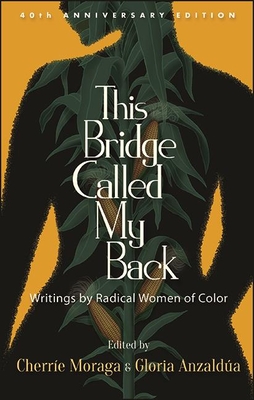 This Bridge Called My Back, Fortieth Anniversary Edition: Writings by Radical Women of Color (Anniversary)
This Bridge Called My Back, Fortieth Anniversary Edition: Writings by Radical Women of Color (Anniversary)
by Cherríe Moraga and Gloria AnzaldúaState University of New York Press (Nov 01, 2021)
Read Detailed Book Description
Originally released in 1981, This Bridge Called My Back is a testimony to women of color feminism as it emerged in the last quarter of the twentieth century. Through personal essays, criticism, interviews, testimonials, poetry, and visual art, the collection explores, as coeditor Cherr e Moraga writes, "the complex confluence of identities—race, class, gender, and sexuality—systemic to women of color oppression and liberation."
Reissued here, forty years after its inception, this anniversary edition contains a new preface by Moraga reflecting on Bridge’s "living legacy" and the broader community of women of color activists, writers, and artists whose enduring contributions dovetail with its radical vision. Further features help set the volume’s historical context, including an extended introduction by Moraga from the 2015 edition, a statement written by Gloria Anzald a in 1983, and visual art produced during the same period by Betye Saar, Ana Mendieta, Yolanda L pez, and others, curated by their contemporary, artist Celia Herrera Rodr guez. Bridge continues to reflect an evolving definition of feminism, one that can effectively adapt to and help inform an understanding of the changing economic and social conditions of women of color in the United States and throughout the world.
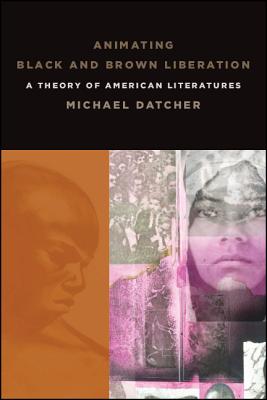 Animating Black and Brown Liberation: A Theory of American Literatures
Animating Black and Brown Liberation: A Theory of American Literatures
by Michael DatcherState University of New York Press (Apr 01, 2019)
Read Detailed Book Description
Animating Black and Brown Liberation introduces a vital new tool for reading American literatures. Rooted in both ancient Egyptian ideas about life and cutting-edge theories of animacy, or levels of aliveness, this tool—ankhing—enables Michael Datcher to examine the ways African American and Latinx literatures respond to and ultimately work to resist hegemonic forces of neoliberalism and state-sponsored oppression. Weaving together close readings and politically informed philosophical reflection, Datcher considers the work of writer-activists Toni Cade Bambara, Cherríe Moraga, Gloria Anzaldúa, June Jordan, Salvador Plascencia, and Ishmael Reed, in light of theoretical interventions by Jane Bennett, Mel Y. Chen, Bruno Latour, Michel Foucault, Paulo Freire, and Erica R. Edwards. How, he asks, can cultural production positively influence Black and Brown material conditions and mobilize collective action "off the page"? How can art-based counterpublics provide a foundation for Black and Brown community organizing? What emerges from Datcher’s innovative analysis is a frank assessment of the links between embodied experiences of racialization, as well as a distinctive vision of twentieth- and twenty-first-century American literature as a repository of emancipatory strategies with real-world applications.
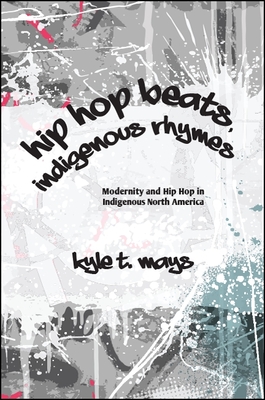 Hip Hop Beats, Indigenous Rhymes
Hip Hop Beats, Indigenous Rhymes
by Kyle T. MaysState University of New York Press (Apr 01, 2018)
Read Detailed Book Description
Expressive culture has always been an important part of the social, political, and economic lives of Indigenous people. More recently, Indigenous people have blended expressive cultures with hip hop culture, creating new sounds, aesthetics, movements, and ways of being Indigenous. This book documents recent developments among the Indigenous hip hop generation. Meeting at the nexus of hip hop studies, Indigenous studies, and critical ethnic studies, Hip Hop Beats, Indigenous Rhymes argues that Indigenous people use hip hop culture to assert their sovereignty and challenge settler colonialism.
From rapping about land and water rights from Flint to Standing Rock, to remixing traditional beading with hip hop aesthetics, Indigenous people are using hip hop to challenge their ongoing dispossession, disrupt racist stereotypes and images of Indigenous people, contest white supremacy and heteropatriarchy, and reconstruct ideas of a progressive masculinity. In addition, this book carefully traces the idea of authenticity; that is, the common notion that, by engaging in a Black culture, Indigenous people are losing their traditions. Indigenous hip hop artists navigate the muddy waters of the politics of authenticity by creating art that is not bound by narrow conceptions of what it means to be Indigenous; instead, they flip the notion of tradition and create alternative visions of what being Indigenous means today, and what that might look like going forward.
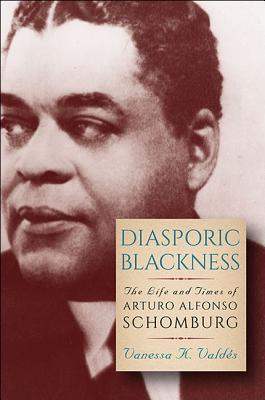 Diasporic Blackness: The Life and Times of Arturo Alfonso Schomburg
Diasporic Blackness: The Life and Times of Arturo Alfonso Schomburg
by Vanessa K. ValdésState University of New York Press (Jan 02, 2018)
Read Detailed Book Description
Examines the life of Arturo Alfonso Schomburg through the lens of both Blackness and latinidad.
A Black Puerto Rican–born scholar, Arturo Alfonso Schomburg (1874–1938) was a well-known collector and archivist whose personal library was the basis of the Schomburg Center for Research in Black Culture at the New York Public Library. He was an autodidact who matched wits with university-educated men and women, as well as a prominent Freemason, a writer, and an institution-builder.
While he spent much of his life in New York City, Schomburg was intimately involved in the cause of Cuban and Puerto Rican independence. In the aftermath of the Spanish-Cuban-American War of 1898, he would go on to cofound the Negro Society for Historical Research and lead the American Negro Academy, all the while collecting and assembling books, prints, pamphlets, articles, and other ephemera produced by Black men and women from across the Americas and Europe. His curated library collection at the New York Public Library emphasized the presence of African peoples and their descendants throughout the Americas and would serve as an indispensable resource for the luminaries of the Harlem Renaissance, including Langston Hughes and Zora Neale Hurston. By offering a sustained look at the life of one of the most important figures of early twentieth-century New York City, this first book-length examination of Schomburg’s life as an Afro-Latino suggests new ways of understanding the intersections of both Blackness and latinidad.
“Essential.” — CHOICE
“…Valdés’s book represents a valuable contribution to the study of the life and work of Schomburg and the history of Puerto Ricans and African-Americans of his moment.” — Centro Voices
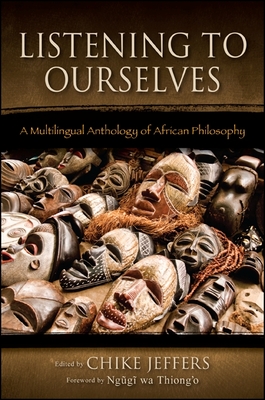 Listening to Ourselves: A Multilingual Anthology of African Philosophy
Listening to Ourselves: A Multilingual Anthology of African Philosophy
by George YancyState University of New York Press (Jul 02, 2014)
Read Detailed Book Description
A groundbreaking contribution to the discipline of philosophy, this volume presents a collection of philosophical essays written in indigenous African languages by professional African philosophers with English translations on the facing pages—demonstrating the linguistic and conceptual resources of African languages for a distinctly African philosophy.
Hailing from five different countries and writing in six different languages, the seven authors featured include some of the most prominent African philosophers of our time. They address a range of topics, including the nature of truth, different ways of conceiving time, the linguistic status of proverbs, how naming practices work, gender equality and inequality in traditional society, the relationship between language and thought, and the extent to which morality is universal or culturally variable.
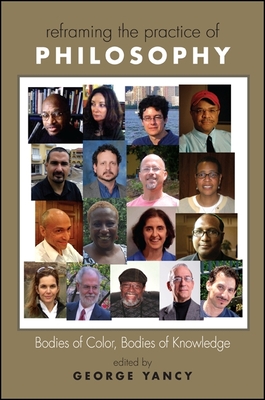 Reframing the Practice of Philosophy: Bodies of Color, Bodies of Knowledge
Reframing the Practice of Philosophy: Bodies of Color, Bodies of Knowledge
by George YancyState University of New York Press (Jan 01, 2012)
Read Detailed Book Description
Reflections by leading Latin American and African American philosophers on their identity within the field of philosophy.
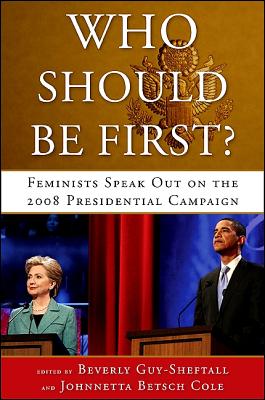 Who Should Be First?: Feminists Speak Out on the 2008 Presidential Campaign
Who Should Be First?: Feminists Speak Out on the 2008 Presidential Campaign
by Johnnetta Betsch Cole and Beverly Guy-SheftallState University of New York Press (Aug 01, 2010)
Read Detailed Book Description
Feminists speak out on race and gender in the 2008 Presidential campaign.
 Go, Tell Michelle: African American Women Write To The New First Lady
Go, Tell Michelle: African American Women Write To The New First Lady
by Barbara A. Seals Nevergold and Peggy Brooks-BertramState University of New York Press (Jan 15, 2009)
Read Detailed Book Description
Treasury of letters written by African American women to Michelle Obama.
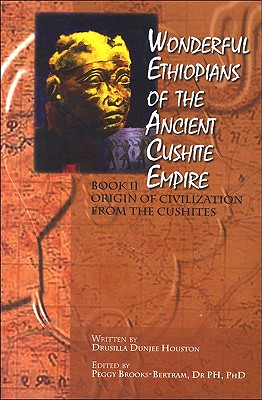 Wonderful Ethiopians Of The Ancient Cushite Empire, Book 2: Origin Of Civilization From The Cushites
Wonderful Ethiopians Of The Ancient Cushite Empire, Book 2: Origin Of Civilization From The Cushites
by Drusilla Dunjee Houston and Peggy Brooks-BertramState University of New York Press (Jan 01, 2007)
Read Detailed Book Description
Classic history of Ancient Ethiopia, as researched and written by a heralded African American woman activist.
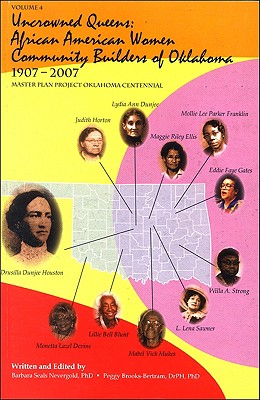 Uncrowned Queens, Volume 4: African American Women Community Builders of Oklahoma
Uncrowned Queens, Volume 4: African American Women Community Builders of Oklahoma
by Barbara A. Seals Nevergold and Peggy Brooks-BertramState University of New York Press (Jan 01, 2007)
Read Detailed Book Description
For generations, African American women have served as inspirational community builders and leaders across the United States. The fourth, remarkable volume in an acclaimed series of biographical sketches, Uncrowned Queens, Volume 4 illuminates another one-hundred African American women community leaders in Oklahoma. Barbara A. Seals Nevergold and Peggy Brooks-Bertram shift their attention to the American west to speak of the lives, careers, and challenges of African American women whose hard work, savvy, and persistence continue to make a difference in the Sooner State. An indispensable source, this book is essential reading for those wishing to appreciate fully the contribution of African American women to modern America. Barbara A. Seals Nevergold and Peggy Brooks-Bertram are cofounders of the Uncrowned Queens Institute for Research and Education on Women, Inc. at the University at Buffalo, State University of New York.
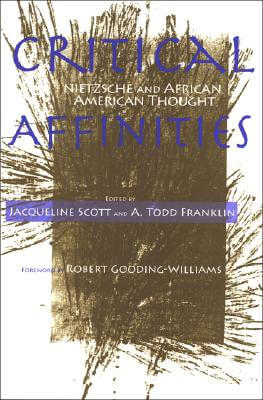 Critical Affinities: Nietzsche And African American Thought (Suny Series, Philosophy And Race)
Critical Affinities: Nietzsche And African American Thought (Suny Series, Philosophy And Race)
by Jacqueline Scott and A. Todd FranklinState University of New York Press (Sep 14, 2006)
Read Detailed Book Description
Explores convergences between the ideas of Friedrich Nietzsche and African American thought.
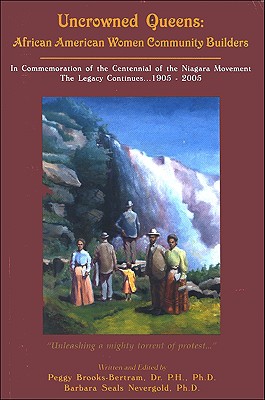 Uncrowned Queens, Volume 3: African American Women Community Builders of Western New York
Uncrowned Queens, Volume 3: African American Women Community Builders of Western New York
by Barbara A. Seals Nevergold and Peggy Brooks-BertramState University of New York Press (Jan 01, 2005)
Read Detailed Book Description
For generations, African American women have served as vibrant community builders and leaders across the United States. The third, wonderful volume in an acclaimed series of biographical sketches, Uncrowned Queens, Volume 3 reveals another one hundred women community leaders in the northeastern United States. Inspired by the centennial of the Niagara Movement, Peggy Brooks-Bertram and Barbara A. Seals Nevergold tell of the worlds, careers, and challenges of African American women whose hard work, savvy, and persistence continue to make a difference. An indispensable source, this book is essential reading for those wishing to appreciate fully the contribution of African American women to modern America. Peggy Brooks-Bertram and Barbara A. Seals Nevergold are cofounders of the Uncrowned Queens Institute for Research and Education on Women, Inc. at the University at Buffalo, State University of New York.
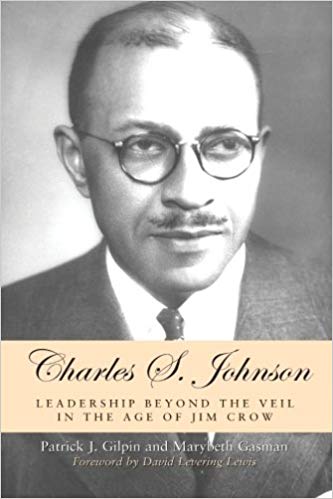 Charles S. Johnson: Leadership Beyond the Veil in the Age of Jim Crow
Charles S. Johnson: Leadership Beyond the Veil in the Age of Jim Crow
by Patrick J. Gilpin, Marybeth Gasman, and David Levering LewisState University of New York Press (Oct 23, 2003)
Read Detailed Book Description
The milestones for blacks in twentieth-century America—the Harlem Renaissance, the struggle for equal education, and the civil rights movement—would have been inconceivable without the contributions of one important but often overlooked figure, Charles S. Johnson (1893-1956). This compelling biography demonstrates the scope of his achievements, situates him among other black intellectuals of his time, and casts new light on a pivotal era in the struggle for black equality in America.
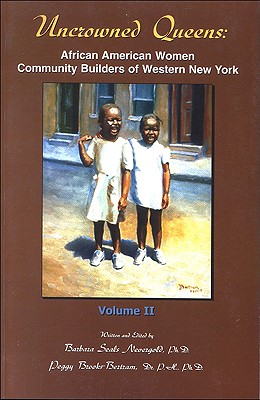 Uncrowned Queens, Volume 3: African American Women Community Builders of Western New York
Uncrowned Queens, Volume 3: African American Women Community Builders of Western New York
by Barbara A. Seals Nevergold and Peggy Brooks-BertramState University of New York Press (Jan 01, 2003)
Read Detailed Book Description
For generations, African American women have served as vibrant community builders and strong leaders across the United States. The second in an acclaimed series of biographical sketches, Uncrowned Queens, Volume 2 illuminates the lives of one hundred more women community leaders in the northeastern United States. Barbara A. Seals Nevergold and Peggy Brooks-Bertram share the successes and struggles of women whose vision and fortitude resonate today. Readable and informative, this book is essential reading for those wishing to appreciate fully the contribution of African American women to modern America. Barbara A. Seals Nevergold and Peggy Brooks-Bertram are cofounders of the Uncrowned Queens Institute for Research and Education on Women, Inc. at University at Buffalo, State University of New York.
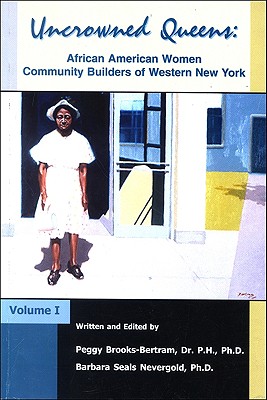 Uncrowned Queens, Volume 1: African American Women Community Builders of Western New York
Uncrowned Queens, Volume 1: African American Women Community Builders of Western New York
by Barbara A. Seals Nevergold and Peggy Brooks-BertramState University of New York Press (Jan 01, 2002)
Read Detailed Book Description
For generations, African American women have served as community builders and leaders across the United States. This unique volume showcases the lives of one hundred of these community leaders in the northeastern United States. Peggy Brooks-Bertram and Barbara A. Seals Nevergold tell movingly of the lives, accomplishments, and challenges of women whose energy, determination, and legacy continue to make a difference. Accessible and informative, this book is indispensable for those wishing to better understand the contribution of African American women to modern America. Peggy Brooks-Bertram and Barbara A. Seals Nevergold are cofounders of the Uncrowned Queens Institute for Research and Education on Women, Inc. at the University at Buffalo, State University of New York.
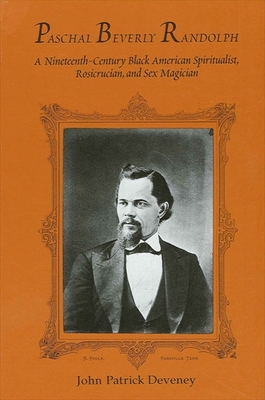 Paschal Beverly Randolph: A Nineteenth-Century Black American Spiritualist, Rosicrucian, and Sex Magician
Paschal Beverly Randolph: A Nineteenth-Century Black American Spiritualist, Rosicrucian, and Sex Magician
by John Patrick DeveneyState University of New York Press (Nov 14, 1996)
Read Detailed Book Description
This first scholarly work on Paschal Beverly Randolph includes the full text of his two most important manuscripts on sexual magic.
This is the fascinating story of Randolph, an African American who carved his own eccentric path in the mid-nineteenth century from the slums of New York’s Five Points to the courts of Europe, where he performed as a spiritualist trance medium. Although self-educated, he became one of the first Black American novelists and took a leading part in raising Black soldiers for the Union army and in educating Freedmen in Louisiana during the Civil War. His enduring claim to fame, however, is the crucial role he played in the transformation of spiritualism, a medium’s passive reception of messages from the spirits of the dead, into occultism, the active search for personal spiritual realization and inner vision.
From his experiences in his solitary travels in England, France, Egypt, and the Turkish Empire in the 1850s and 1860s, he brought back to America a system of occult beliefs and practices (the magic mirror, hashish use, and sexual magic) that worked a revolution. The systems of magic he taught left their traces on many subsequent occultists, including Madame Blavatsky and her Theosophical Society, and are still practiced today by several occult organizations in Europe and America that carry on his work. This is the first scholarly work on Randolph and includes the full text of his two most important manuscript works on sexual magic.
